|
By Luke Bechtel During their conversation, David and Bridget discussed the intricacies of the complex, competitive world of film festivals, such as tips about being accepted into festivals far and wide as well as the state of the festival industry amidst the COVID-19 pandemic. David also explored various aspects behind the roles and responsibilities that directors often have to juggle on set during the production of their films, including tricks for staying motivated and positive in a stressful work environment. David’s interview has been edited and condensed for clarity. Watch the video version here. How did you get involved in Chicago’s film scene? I was making movies sort of on my own, and kind of stepped away from that and had a couple of careers, and I ended up working at a school that had a film festival. That was around when [filmmaking equipment] was starting to reach the consumer level, so digital editing was coming into existence. That change democratized filmmaking. Through that, I was able to learn editing and the technology of it, and, from there, decided I wanted to become a lot more involved in film. Over time, I started off doing smaller projects and worked my way up to bigger projects; my network just started to grow from that to where we are today. Very cool. With the production sound stages at Cinespace and now Monkeypaw Productions filming Candyman in Chicago, the city’s becoming a very hot spot for filmmakers. Where do you see it in, say, ten years, and how can local Chicago filmmakers make an impact? Where I see it in ten years is largely dependent on the state of Illinois and the tax breaks that they offer. Currently, they offer a 30% tax incentive, and that brings a lot of productions in from the outside. That’s what’s driving a lot of network and feature production. In terms of what Chicagoans can do, just get involved. Start with local stuff, small stuff, get to know people. It’s still a fairly small community here in Chicago; nobody here is very far removed from anything big that’s going on. It’s just a matter of working your way into that. 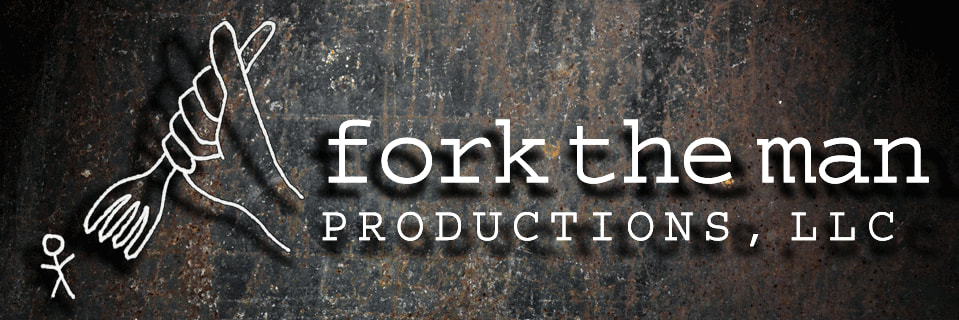 David Bradburn's Production Company. David Bradburn's Production Company. Yeah, I feel like there’s definitely a lot of smaller production companies that not a lot of people know about in Chicago. Do you have any that you’d recommend for student filmmakers to get involved with? I mean, I’d recommend my own! But no, there’s no shortage of production companies in Chicago. If you’re a student filmmaker, assuming you’re not working with a university, just start reaching out to people. Do your due diligence with searching. See where’s a good fit and what fits in your budget. Some companies won’t work below a certain bottom line, but others are a little more flexible. During this time, it’s a whole new ballgame; we don’t know what’s going to happen next, when the money’s going to start to flow again, or when production is really going to pick up. There are a few things starting to film, but it’s really not back in full swing yet. A lot of the things that have started to film are working with really, really, really skilled crews. The work is starting to come back, but it certainly is not back yet. Let’s talk about being an independent filmmaker and getting your film off the ground. We have a question from Puerto Rico, and Marco asks, “how do you find a producer and financiers?” To be honest, most of my own creative work has been self-financed. It was really just a matter of setting my budget for the year so that I had money to make movies. When I was teaching and working as a freelancer at the same time, I lived off my teaching money and created with my freelance money. So, looking for financing is always the trick, right? I wish I had a great answer that could help everyone find financing really easily, but no two projects are funded the same. It’s a matter of figuring out how the project you’re working on can get money. I’m working on a project now, and we’re looking to partner with an organization that deals with the topic that the film is about, and we’re trying to set them up as our fiscal sponsor. So, people will donate to that entity, and, in turn, that entity will grant us money, and people who donate will get a tax write-off. But crowdfunding is really hard! It requires an expansive network and needs to build momentum quickly. If you’re lucky enough to know somebody who’s connected to money, then that’s a different route to go. But there’s no one simple answer, and none of the answers are the same. I never really thought about reaching out to organizations that are similar to the topic you’re making a film about. That’s a good idea, especially for independent filmmakers. Yeah, it’s something we’re trying differently for this project. We’ll see how it goes. It’s taken us a lot longer to actually start raising money, but hopefully here at the end, it’ll pay off because once we finish the film, we’ll already have an entity in place that we can partner with for screenings that will help raise awareness of the social issues our film talks about. Can you talk a bit about that? Is it a feature? A short? It’s a short. It’s a dark comedy about testicular cancer - the title is My Best Nut. We’re looking to raise awareness and normalize conversations about testicular cancer, which, if it’s caught early enough, is a highly treatable disease, but it often isn’t. There’s a lot of stigma around talking about it, whereas breast cancer has really become ubiquitous in our society to talk about, testicular cancer not so much. I’ve had success with festivals where I’ve submitted cover letters, and success with festivals where I didn’t. I’ve found that with festivals, the more you network within that community, the easier it is to get accepted. It’s not just about having a good product. That’s certainly the most important thing, but if you know people, it’ll help. They get thousands of submissions, and they have to figure out which films to show. If you do get it, you should attend in-person; that’s how you meet people and your social capital starts to grow. Definitely. I miss film festivals right now because of COVID-19. I was supposed to be playing at the Milwaukee Film Festival, and that’s not happening. There was supposed to be a big festival through DePaul at the Music Box Theatre in the spring, that didn’t happen. Hopefully 2021 will see film festivals start to come back. I mean, it’s hard. I was supposed to play at a festival in Chicago this summer, and they just pushed it all the way to next year, where it’ll be a two-week festival; the first week will be the 2020 festival and the second will be the 2021 festival. It’s an interesting solution, but it doesn’t really do anything for us right now. In terms of thinking about production, I was stressed that I wasn’t working on anything, but now, even if I had, where would it get shown? Now that everything is going online and nothing is happening in-person, it’s kind of an interesting time seeing how festivals are adjusting to the situation. There have been a lot of virtual festivals, but I don’t know if that’s something I really want to do. I’m more interested in online screenwriting conferences - those are cool. Taking advantage of the virtual, free opportunities to talk to other filmmakers have been great. But film festivals? I’m not so sure. It’s still a good way to connect and see what’s being shown out there, but it’s not really for me. I think the Q&A element and the actual interaction is really important in the festival scene. We have a ton of online content that we’re consuming all day long, so adding a film festival on top of it where you’re watching either by yourself or with a couple of people just doesn’t have the same energy or intrigue as it does to attend in person. So, you’re right - it’s a difficult sell. They also need to figure out how to make money. They end up charging you a bit to get behind a firewall, which makes sense, but we already have things like Netflix and Amazon Prime, so we can get content that way to save money. That factor is important, because a lot of us aren’t making a lot of money right now. It’s a difficult, difficult thing. Exactly. It was kind of shocking to find out they were charging for virtual film festivals. There was one called Flickfair - it’s a virtual film festival, and one of my films got accepted, but they wanted me to pay actual money to get it shown online. I thought that was a little…”mmm, something’s not right here.” I had one [festival] that I got into that wanted everybody to pay to watch their own movie. As a filmmaker whose film was screening, I still had to pay to watch the films in the festival. I’m part of what made your festival happen, you’re showing my content - and now I’m supposed to pay to see that content? That doesn’t feel great. I get that they’re not able to open the venue and make money that way, but I don’t know if your content providers are the ones you should be charging.
I wouldn’t say I’m the world’s greatest cover letter writer - and that goes back to when I was looking for a regular job as well - but I think what you want to do is indicate anything that’s unique about your project up front. Location, subject, actors, anything that can make your film slightly different from every other film that’s telling the same story. At this point in human history, we’re not really telling new stories - we’re just telling our version of old stories. Anything that can make yours a little different, put that in there. Whenever I submit to festivals in town, I tend to make sure to mention that “hey, I’m a product of this environment.” Since you’re a freelance director, Jaleigha from Houston, TX wants to know, “how do you know you’re right for a project?” It really depends on how you decide what you want to do. Sometimes it’s as practical as, “this is a paid gig, and I need to get paid.” There’s nothing immoral about doing that, it might just not be my fiery passion, but it’s still an okay project to do. There’s times I’ve done stuff that, looking back on it, there was nothing really wrong with it, but it just wasn’t great. It either wasn’t a great experience, or the topic was something I was only mildly interested in, but it was still work. When you have the problem of plenty and you have to pick between things, that’s when you can roll up your sleeves and say, “hey, this is far more interesting and far more what I want to focus on, so I’ll go in this direction.” But really, just set your standards and stick to them. It’s okay to say “no.” Don’t make the fear of new work never coming again a driving reason to take a project. Just give yourself that freedom. As a follow-up question, how do you politely decline a project if you don’t think you’re the right fit or not a fan of the concept? You can just say, “I don't think I'm the best person for this project.” There’s nothing wrong with saying that. I've been turned down by people saying they've got family obligations, or they’re booked on something else. I assume that that's truthful, but it doesn't matter; it’s always okay to say no. You don't need to go into every last detail. If there's something really concerning or something really specific you can call that out, but it also depends on your level of familiarity with whoever is doing the hiring. 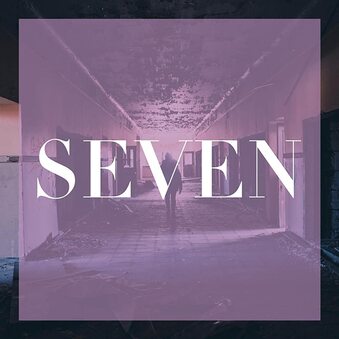 Artwork for David Bradburn's film, Seven. Artwork for David Bradburn's film, Seven. Your short film Seven focuses on the culture of violence in African American relationships and was written by Kia, a domestic violence survivor. Being a male director when the film is about two female domestic violence survivors, how important was it to work with her and get her perspective before directing? It was very important. I have a background in social work, so this wasn't the first time I talked to someone in a domestic violence situation, but understanding as best as I could the perspective and point of view of the characters is helpful to understand, these are the things that the character would be dealing with, and how do we get that to come out on the screen? I mean, was it more important in domestic violence than other stuff? I think it's always important to really have conversations with your actors, and those conversations become increasingly important when it’s something outside of your experience. Clearly I’ve never been a woman of color, so that was something I had to have more conversations about. According to the National Sexual Violence Resource Center’s website, nearly one in five women and one in 71 men in the U.S. have been raped at some time in their lives - it's heartbreaking. Talking about sexual harassment is becoming less of a taboo subject with movements such as the #MeToo movement, but I feel like as a filmmaker there's still no training on how to handle situations like this. Vince from Seattle wants to know, “how you handle sexual harassment on set?” I think that really comes down to your hiring practices - know who you're hiring so it doesn't become an issue. Don't let it get to the point that it's coming on set, because once it’s on set you have to address it swiftly. But if you are hiring people that either you know or other people know and you do your due diligence as someone’s employer, you lower the chances of that happening. But, I mean, it’s an issue, clearly. What about sexism on set? It’s hard being a female sometimes in the sense that I’ve had some sexist crew members and it's a hard conversation to have. Being on a film set, the work is difficult under the best circumstances, and adding [issues of sexism] to that only makes it worse. It becomes a matter of addressing it directly – you can’t just sit and wish it didn’t happen. You have to say, “no, it won’t happen.” If it's someone from the grip department, you need to have the producer and the DP [director of photography] take action; there are chains of command. If it happens to an actor, that becomes a different level of problem because you're trying to pull a performance out of that person and now you’ve tainted that space, so that has to be addressed. So again, a lot of it goes back to cultivating who the people are in the tribe that you have on set. The reality is, too, that your reputation will spread pretty quickly. That’s even more impactful in the indie world, as if you’re not an A-list actor who commands a lot of money and studios are very invested in, you’ll get dropped pretty quickly when word gets around that you’re a problem on set. It’s definitely a major problem. As a director, I believe it’s very important that everyone feels comfortable to be themselves without being judged on set. Troy from the United Kingdom asks, “how do producers and directors ensure their work environment is a friendly and collaborative place?” Not to sound like a broken record, but it all goes back to who you're hiring. Make sure you hire people that are going to gel together as a team, and then establish how you behave on set. It has to come from the top down; have a producer that can manage the climate and hire department heads that work well with those that are assisting them. I think the more that you can be relaxed in that intense environment, the better. Good preparation helps, too. There's no substitute for good pre-production, and that will help mitigate stress on set. The less stressful the set is, the less likely people are going to be acting out of their stressed self, which would make things more tense. But, again, hire well.
but if you’re filming a really difficult scene that day, you’re not going to put on some dance song and have everybody be up and pumping. You also have to be sensitive to the fact that these actors have to get into a certain space to perform well. You want to be really sensitive to what their needs are as well. There's no one simple answer because there are so many variables and it's just looking at those variables and figuring out what the best solution is. I agree with what you said about making sure everyone feels valued on set, and actually knowing names is important too. Yeah, I agree. The bigger the set, the more difficult it is, though, because as a director I have a lot of responsibilities and I can't always talk to everybody or know every name, but somebody needs to do that, so everyone knows that they are included. We're all finite in what we are able to bring without taxing ourselves too much. It’s the same with the actors; they don't need to go around and converse with everybody because they need to be in the space that they can perform to get more into their role. Roger from the United Kingdom wants to know, “if you have to fire someone, how can you let them go politely and respectfully?” Fortunately, it hasn't happened a lot, and I can't think of a time that we've ever had to ask somebody to leave the set. There have been times that we've not asked them to come back, where, at the end of the day when we wrap on the project, you just replace that position. More common is the list of people that you don't want to work with again. If you’re showing up late, not doing your work, slowing down production, then you’re going to go on the list of do-not-hires. A lot of the firing is passive in that I'm just not bringing a person back. I've never had to be in a situation where we have to send somebody home that day, but there have been times where there was some overbooking, so we had to send people home early in the day - but they still got a day's pay, we just weren’t able to give them actual physical work. That wasn't great either, but it wasn't as hard of feelings because they still got paid. It’s definitely difficult. It’s even harder when you first start off and you can’t pay your crew. I had a producer once who just simply was not putting in the effort, not showing up on time, and it’s a hard thing to politely tell them it’s not working out. I had to write an email because I felt bad saying it to his face, but it was obvious that he knew what he was doing wrong, too. But let’s admit it: being on set can be really stressful with a million different people asking you a million different things. Jaleigha from Houston, TX asks, “as a director, what’s something you don’t want to forget while on set?” Um…what I'm doing? Yes, you have so much to remember as a director, so what's nice is when you have someone like a script supervisor or an assistant director to help you remember certain things. I think having really good notes going into shooting of what you're doing and how you plan on executing it is also very important. You should be having these conversations with the DP so that you two are on the same page, but all that takes place before filming actually starts. 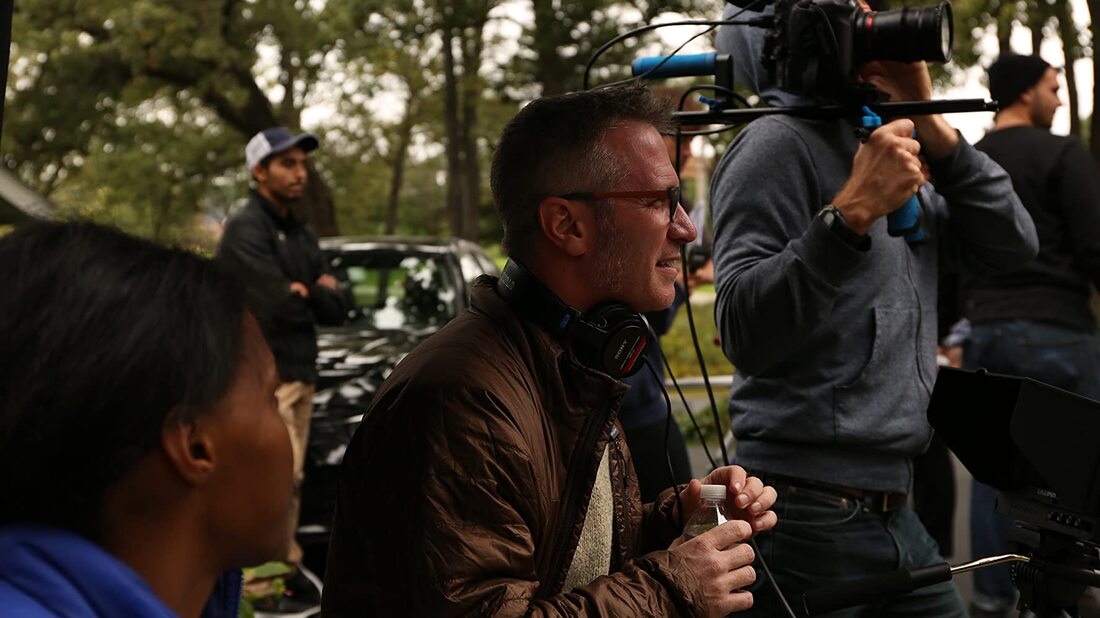 BTS from Bradburn's proof of concept, Some Years Earlier. BTS from Bradburn's proof of concept, Some Years Earlier. When you're in the moment, you need to think, “this is what we were trying to do, this is what we already have established, now here are the variables we anticipated.” There are times when I've wanted certain shots, I had them on the list, and somehow we forgot. You know, that kind of stuff happens. Making sure that you have enough coverage to cut the piece together when you're done is possibly the most important thing to remember. There is a lot for the director to do, and if you’re on set and the director seems to be preoccupied with something else, they’re probably preoccupied with a dozen more things, so don’t take it personally. I feel that, though. Sometimes, you get so in the moment that the shot you really wanted ends up forgotten. But you’re right, having an assistant director is beautiful. It’s a great experience. As a follow-up question, Val from Vancouver wants to know, “how do you deal with pressure and expectations put onto you?” It’s helpful to keep in mind where those expectations are coming from. If it's my personal project that I wrote, financed, and directed, then I'm pretty good at establishing expectations. The point of the phrase that “filmmaking is an exercise in disappointment” is that you have this vision, and you have what you can make - those are not the same thing. Just get comfortable with that. Always strive for your vision but realize that there are a bazillion variables that are beyond your control. When the expectation is coming from a client or an agency, that becomes different. A lot of that is to communicate as much as you can going in and try to really listen to what your client isn’t understanding so that when you get done with production and you get into the edit, people aren't surprised coming back to you with frustration and disappointment. Communication is key - just give yourself some grace. You're not saving lives; you’re making a movie and working with a bunch of people in an imperfect environment. Nothing is going to be exactly how you hope it to be. It is sometimes disappointing, but you also need to remember to just let go and have fun. Don’t be afraid to make mistakes. Even if your finished product isn’t a great movie, you still learned so much being on set. People ask me all the time, “what’s your favorite of your movies?” and I can never pick one because they’re all important in different ways. I can look at the one where I learned to do this, or learned not to do that, or the one that suddenly got me more public exposure. But then, I remember that that public exposure came only because of the lessons I learned on other films. So, to have a favorite one of mine, I can’t. You’re right about having fun; sometimes it’s work, and it feels like work. But sometimes, it’s a blast. It’s the whole process. It’s every piece along the way where you can look at it all collectively and say, “was that fun?” How has the pandemic affected your work or creative process? It’s decimated work - completely took it away. [The pandemic] has changed things drastically in that it's made the creative process more difficult. I can write now because all it takes is a computer, but there's a dearth of hope at this moment. In the past I could say, “I know I can put this together because I know we can do x, y, or z. Now, I don’t know what we can and can’t do. With My Best Nut, we’ve got some scenes where there are children in a hospital and the main character’s reading them stories and stuff, and it's a really great scene that says a lot about the character, but I don't know if we can film it. Now we need to figure out how to tell that part of the character’s story in a different way. That’s made the creative process challenging. Not knowing when work’s coming makes me say, “well, why do I write today when I can write tomorrow?” There's no urgency because everything is just a big question mark. I feel like there’s a lot of fatigue in this moment, too. You’re exhausted because you don’t know when this will all be over with. And we still don’t know. Yeah, not knowing is so draining. What about your mental health? Has it definitely changed? The way I’ve talked about it is, I spend a lot of energy staying positive. When I’m spending energy staying positive, I don't have energy left over to progress. It’s definitely been a drain. When this first hit, it was like we got a month free – I’m fairly introverted, so I said, “whatever, I could stay all alone and stay motivated, I know I won't sit around watching Netflix all day, I’ll try to stay active. But as it's dragged on, it’s becoming more and more of a challenge to get up and feel like, “hey, what I'm going to do today actually matters.” It’s gotten hard. Is there anything that has helped you stay motivated that helps you see the light at the end of the tunnel? Really just digging in and saying, “I still find enjoyment in doing this.” I was just talking today with a DP about an idea I had not so much for a story, but rather a way to approach doing something during this time. That type of conversation is exciting because there’s a sense of possibility. Whether or not we’ll try to pull it off remains to be seen. Staying in touch with people that are in the same situation as you trying to do the same things is encouraging. The fact that we’re all on the same boat helps. What’s next for you, David?
Honestly, I don’t know. I spend a fair amount of time looking for work. I’ve got a film for which we’re hoping to start raising funds toward the end of the year to shoot next spring. Aside from that, honestly, I don’t know what’s coming next. That’s part of what’s draining; for the first time in my life, there’s fewer guarantees that whatever I plan will actually happen. We are very much in survival mode now rather than thriving mode. Definitely. Trying to figure out ways to adapt to this “new normal” is all we can do. It’s interesting that there are a lot of films being done virtually now through Zoom and stuff like that. I think that opens up a world of new possibilities too. You’re right, and it’s a matter of finding the right story. I’ve always struggled with writing that “two people in a coffee shop” story, like a feature with two actors and one location. I’ve never had the story that fits that mold. I’ve certainly written with some pretty tight parameters, but the more I write, the more I want my stories to have space in them. But what’s the story I tell with a bunch of people on Zoom? There’s been some stuff that’s come out, and some of it’s been pretty good, but I just haven’t found what my plot is yet through that vehicle. David Bradburn lives and operates out of Chicago, IL. According to his website, his current projects include a documentary titled Through Air & Water and a coming-of-age film called Some Years Earlier. He can be contacted by way of his production company’s website, www.forktheman.com.
1 Comment
|
AuthorBridget Johnson is the president and co-founder of Dare to Dream Productions. She writes and directs thought-provoking films that inspire others to follow their dreams. Archives
March 2021
Categories and authors
All
|
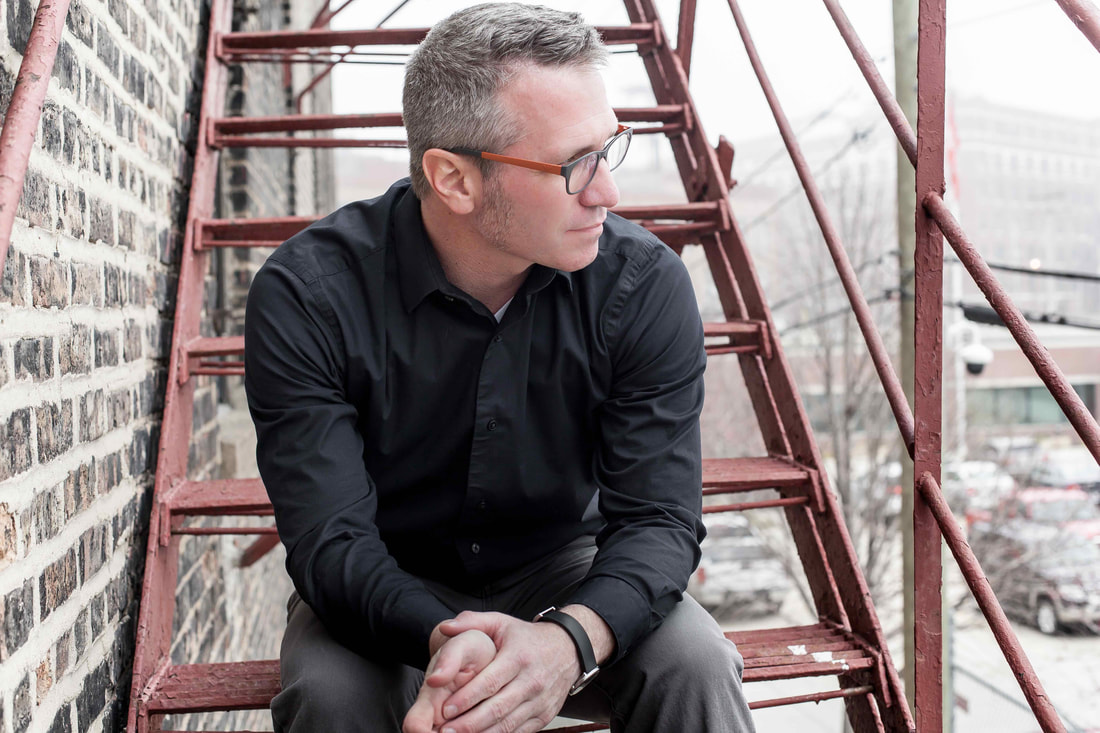
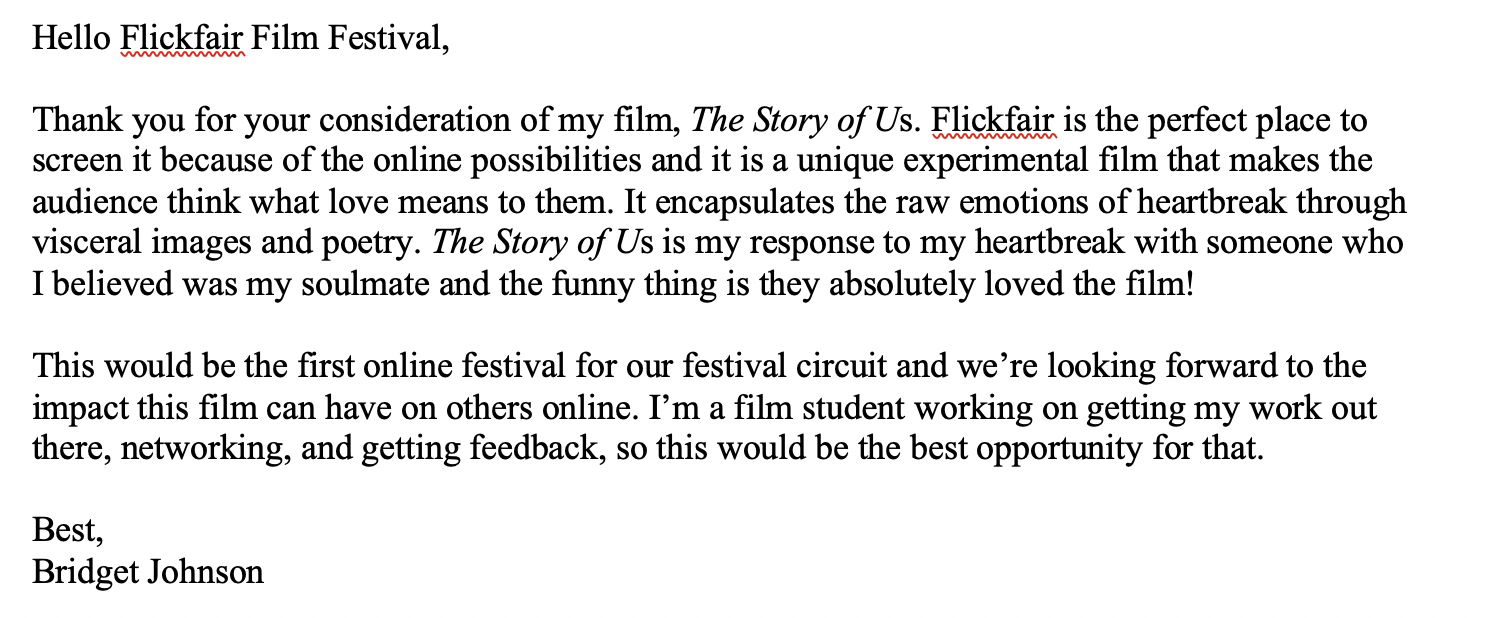
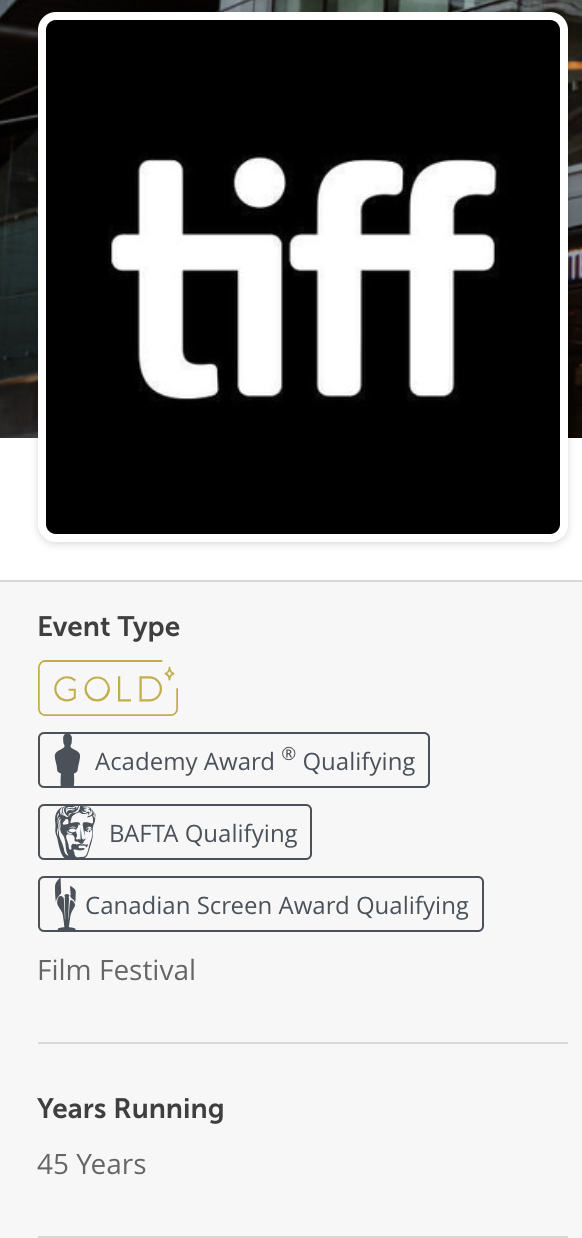
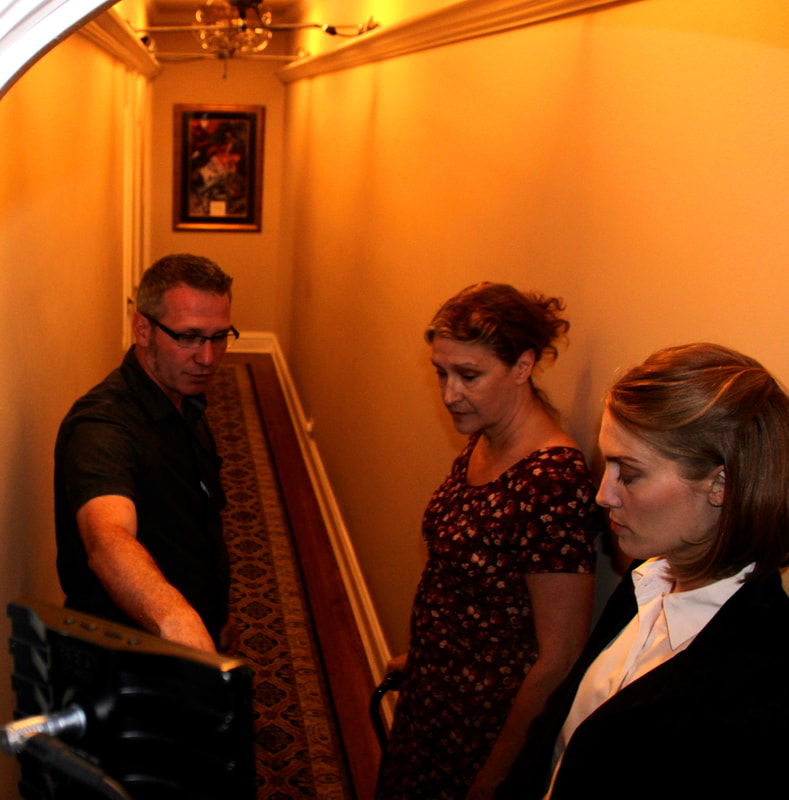
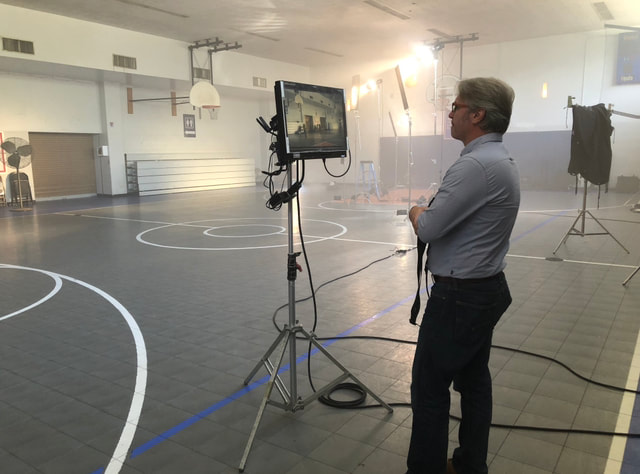
 RSS Feed
RSS Feed